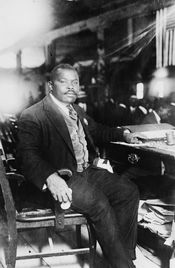1
Silverstein-Rivera
Reyita Book Review
Part I: Summary
Reyita tells the story of Maria de los Reyes Castillo Bueno, a black Cuban woman living through several pivotal moments in Cuban history as a member of perhaps the most disenfranchised group of people in Cuban society; Reyita was poor, she was black, and she was a woman.
The story begins with a recounting of the story of Tatica, Reyita's grandmother, and her trial of being abducted from her native Africa and brought to Cuba to be sold into slavery. Tatica's story sets a precedent that is upheld by the next generations of her family of racial discrimination, struggle for survival and equality, and political activism. Reyita explains that her grandmother's love of Africa instilled in Reyita a passion for visiting her grandmother's homeland that led her to join Marcus Garvey's movement to send black people back to Africa, and her role in this movement inspires her desire for equality and social advancement, although she contradictorily advances her family through means of 'whitening'.
Reyita was born into a large family of mixed origin and color. Reyita, however, was the blackest of her mother's children, and as a result faced racial discrimination within her own family. She recounts that her mother was embarrassed by her, cruel to her, and always more affectionate with her lighter-skinned siblings. Reyita also recounts her mother's personal struggle, with almost constant instability and movement from place to place, looking for work, and putting trust in numerous different men, only to have them either prove not to be deserving of Isabel's trust and affection, or to leave one day and never return. Reyita briefly discusses Isabel's mother-in-law, who was also involved in political activism, but more importantly, lived without discriminating based on color. Mamacita was in a relationship with...


